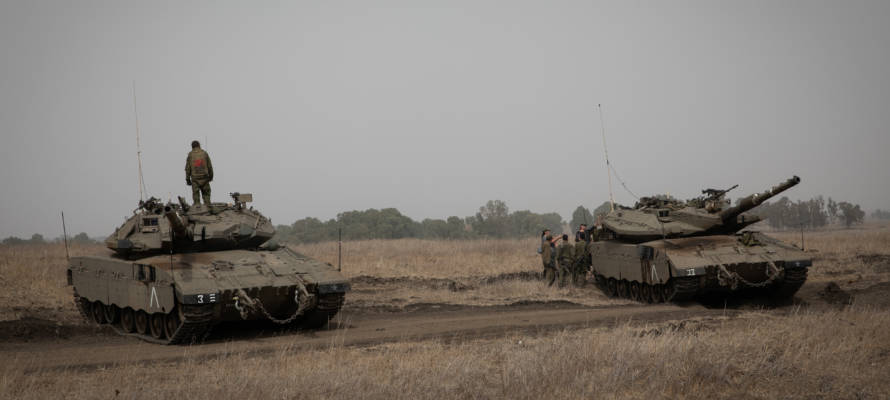“We are working at full strength to find creative solutions that will save lives,” said IDF commander Col. Udi Amira.
By Hanan Greenwood, Israel Hayom via JNS
The Israeli Defense Ministry’s Rehabilitation and Maintenance Center at Tel Hashomer, outside Tel Aviv, is familiar to every member of the Israel Defense Force’s Armored Corps. The center, a subordinate of the IDF’s Technical and Logistics Directorate, produces Merkava tanks and other armored vehicles, builds command and control centers and upgrades other vehicles and communications systems for the army. In recent days, however, the center’s assembly lines have been converted to help fight the war against Israel’s number one enemy: coronavirus.
“Similar to the rest of Israel, we understood we are in a war right now against an invisible enemy, and therefore we decided to pitch in to help fight the coronavirus pandemic,” said the center’s commander, Col. Udi Amira.
Four days ago, the assembly line for manufacturing tank seats was repurposed to make protective goggles for medical crews.
“Within 12 hours we changed our entire work plan,” said Amira. In recent days the center has produced 1,400 protective goggles per day.
The IDF’s Technical and Logistics Directorate has initiated other such projects around the country as well. At a vehicle factory in Haifa, for example, one assembly line is refitting ambulances to protect their crews against the virus.
Workers at the Rehabilitation and Maintenance Center are currently operating in two shifts and are ready to move to three shifts to help the teams in the field.
Other initiatives are also taking shape, including an engineering project to manufacture ventilators made from medical equipment located in one of the factories.
“We also got a request from a hospital and we are trying to help them on a number of urgent matters,” said Amira. “We have a team that wants to make Hazmat suits. The workers understand the challenge the country is facing and are ready for any task. We are working at full strength to find creative solutions that will save lives.”
This article first appeared in Israel Hayom.
